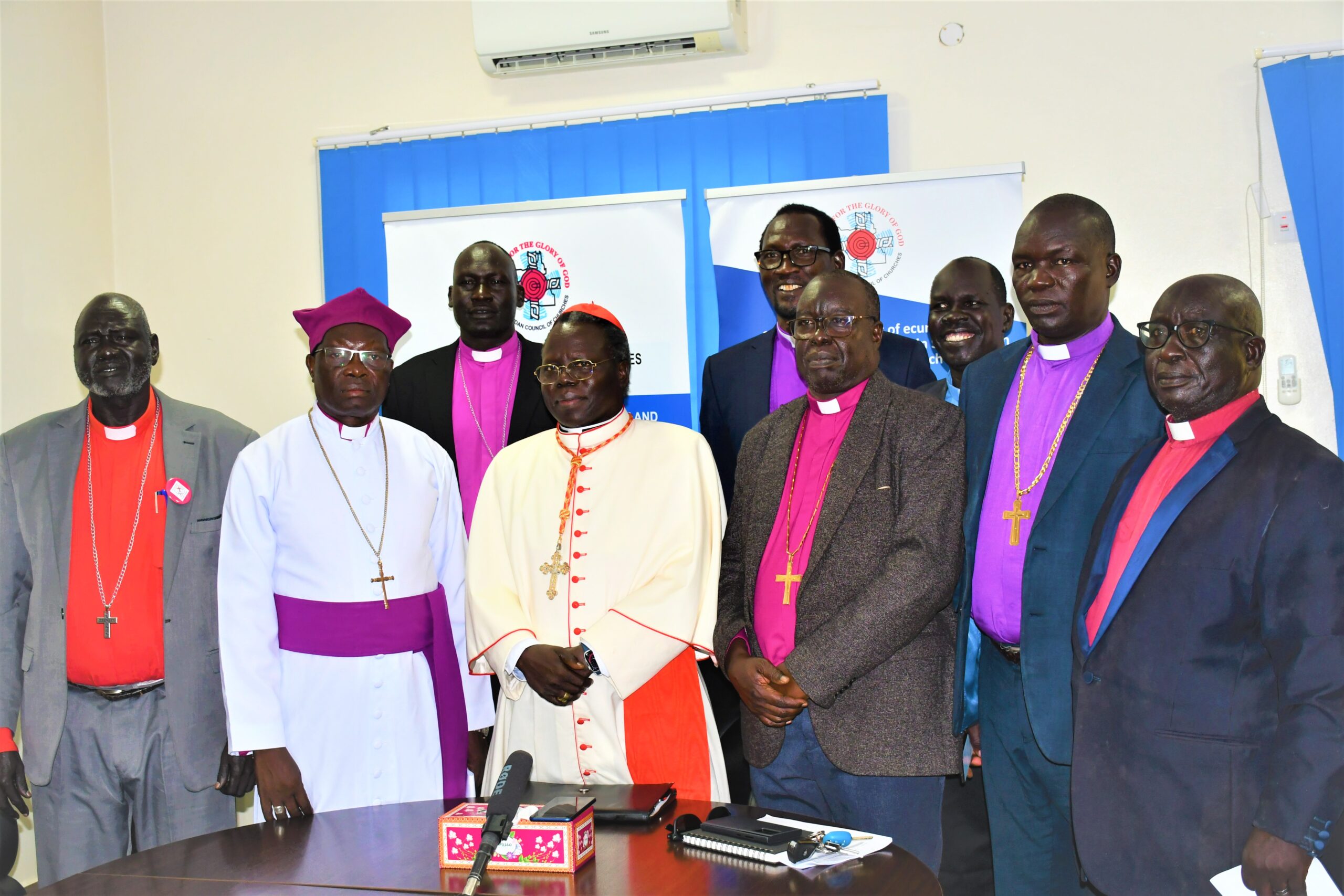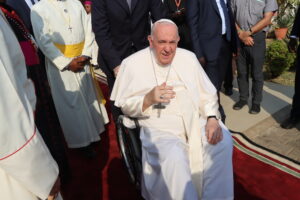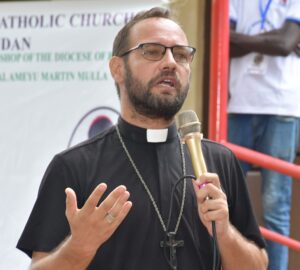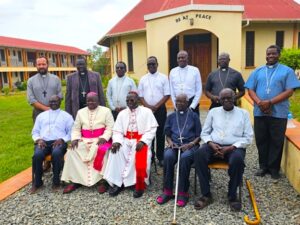SOUTH SUDAN: “Stick to Your Promises and Stop Exploiting Citizens” Church Leaders to Politicians on Extension of Roadmap

Ginaba Lino
South Sudan Council of Churches (SSCC) has on 17 September urged the political elite and parties to the agreement to stick to their promises and stop exploiting the resilience of the people of South Sudan.
In a pastoral message on the extension of the transition period in South Sudan read by the Deputy Chairperson of South Sudan Council of Churches (SSCC) His Eminence Stephen Cardinal Ameyu Martin Mulla says that because of a lack of political will, all the key important provisions in the roadmap remained unimplemented.
“The Church has been keenly following the implementation of the roadmap, all the reasons highlighted for this extension were all stated during the previous extensions, and the Church realized that, because of lack of political will, all the key important provisions in the roadmap remained unimplemented.”
The Church leaders say, there is a need for a political decision to ensure sustainable peace in South Sudan.
“Though there is a need for a political decision to ensure sustainable peace in South Sudan, the political elites and parties to the agreement should not continuously exploit the resilience of the people of South Sudan, they should stick to their promises.”
The head of the Churches urges all stakeholders to prioritize peace, healing, and reconciliation.
The clergies called on the government to ensure that the affected people in the flooded areas, refugees, and IDPs are assisted, including redeeming the current dire economic crisis and paying civil servants and organized forces timely.
“We remind the political leaders to remain committed to their promises and calls during the South Sudan Spiritual leadership retreat in Rome 2019 and the Ecumenical Peace Pilgrimage of Pope,” The Church leaders emphasize.
The joint statement by the Church leaders appreciates and urges the regional and International community and the Ecumenical partners to continue supporting the people of South Sudan in their pursuit of peace and development.
Many South Sudanese across the Country have expressed disappointment following the extension of 2018 revitalized peace agreement which will end with Elections in December 2026.
A political analyst at Juba University professor Dr. Abraham Kuol Nyuon, doubts the extension of the road map, citing that if government were not able to implement peace process in the last 6 years, how sure are they going to fulfil the promises in the 2 years.
“If there was no grantee of implementation of the peace agreement for the last 6 years, then what is the grantee that peace will be implemented in 2 years?”
Professor stated that the extension will come with two aspects which he said the first aspect is there will be no fighting because the top actors will maintain their positions and second is it will bring more suffering to the citizens.
He added that if the political actors are not going to change within these 2 years extension, they should put in mind the elections will not be an easy task for them.
Dr. Kuol emphasized that, he would like to see both parties implementing the remaining takes which could not allow them to go for election this year.
He urged the government to prioritize establishment of electoral institutions, speed up constitution making process, and infrastructure across the Country for easy movement during the elections process.
Luka Aban Nyaidiing voiced his disappointment, stating that the extension has dashed the hopes of many citizens who viewed the elections as a chance for transformation.
“You know this move from the Government is disappointing. People were looking at the elections to bring change, especially with the devaluation of our currency. Our currency has been weakened against the US dollar, and the only hope for the citizens was that the elections would bring about change.”
Aban described the repeated extensions as an indication of the government prioritizing its interests over the needs of the people. He lamented that the lack of political will among governing parties continues to deepen the suffering of South Sudanese citizens.
Mary Ajak, another citizen, said many people were eager for elections, as the country’s deteriorating state has made life increasingly difficult, particularly for women and children.
“We were hoping if the election was held this year, it would have been good, so we could see some change in the country. But now that they’ve extended it, there’s nothing to say, but God will help us until the time comes. I wanted to change because the situation is very bad, especially for women—we are suffering.”
Joseph Gar Abuok shared similar concerns, expressing that the election delay will negatively impact citizens’ lives. He had hoped the general elections would improve his current dire conditions.
“Extending the elections, as a citizen of South Sudan, I see a negative effect on us. A citizen should always feel happy in their nation, but that’s not happening. I had hoped the elections would take place this year as originally planned.”
Gar added that the elections could have been an opportunity to remove non-performing parliamentarians and ministers and replace them with leaders who care about the people.
On 14 September 2024, South Sudan’s Cabinet approved a two-year extension of the transitional period agreed upon by conflict parties in 2018, as well as the first general elections for the same period since the country’s independence from Sudan in 2011.
South Sudan Presidency reached a consensus to extend the transitional period by two years and postpone elections, which were originally scheduled for December this year, to 2026.
“There were some articles in the Revitalized Peace Agreement that were not implemented, and we do not want to rush into an election without implementing all of the articles.
The extraordinary meeting chaired by President Salva Kiir Mayardit, on Saturday approved the extension of the transitional period and the postponement of the elections for another two years after hearing a memo presented by Minister of Cabinet Affairs.
The presidency and political parties agreed to postpone elections scheduled for Dec. 22, 2024, for another two years, allowing the remaining five months of the Revitalized Peace Agreement and Roadmap’s extended transitional period, which ends on Feb. 22, 2025, to be used to mobilize funds.


